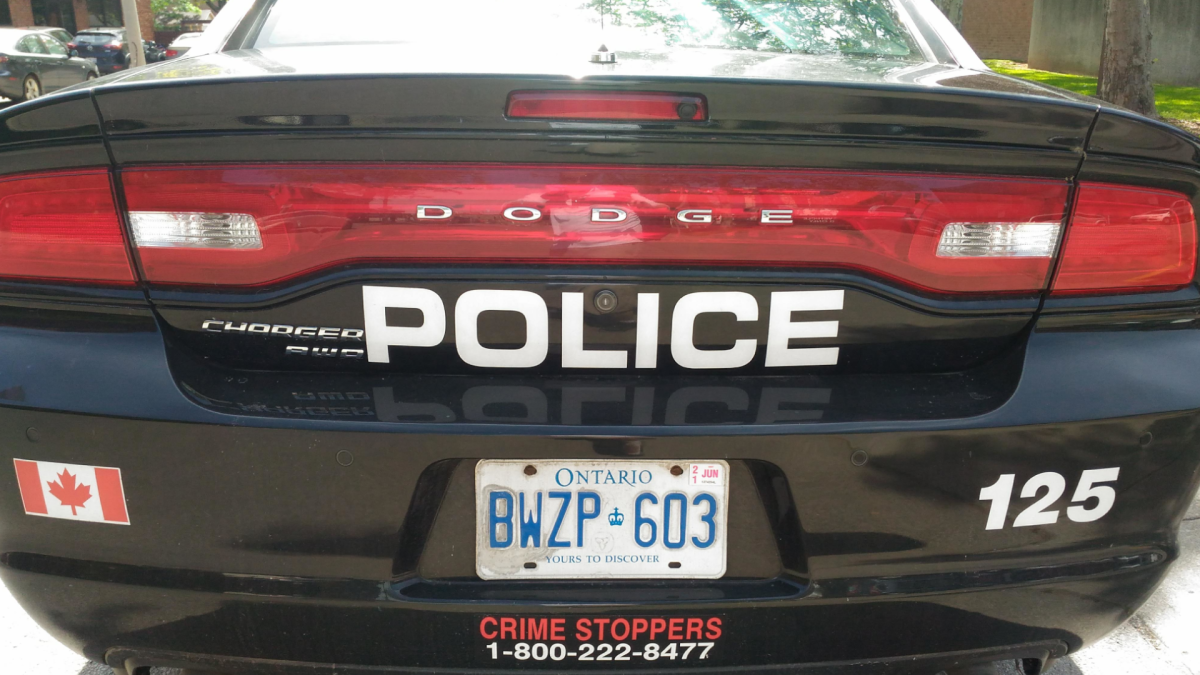A Hamilton police initiative to close gaps in data collection around race and identity with an ultimate goal of bettering interactions in the community is set to begin in the first quarter of 2024.

The project, connected with the arrival of an Ontario Association of Chiefs of Police (OACP) framework, is expected to include the development of a local advisory panel to define disparities in treatment during encounters between police and the general public.
It comes as part of an OACP mandate that identified a gap between data collection requirements and a Race and Identity-Based Data (RIBD) strategy for police services seeking to come into compliance with the province’s Anti-Racism Act (ARA) outlined in 2017.
Insp. Jim Callender says the plan is to connect with the public to “understand from their perspective and their lens” what data should be collected and how it should be analyzed and defined.
“We would hope out of it, we’re able to take action to address … disparities that negatively affect our communities,” Callender said.

Get breaking National news
Hamilton police’s 2022 Use of Force (UOF) report sparked calls for action from anti-racism advocates last year after numbers suggested Black people were “over-represented” during encounters with the service.
Several local anti-racism advocates expressed concerns this week over a section of the annual statistical report that said Black people were disproportionately involved during UOF incidents in Hamilton last year.
The “disparity index” was the focal point of the UOF report saying the Black population had a “gross over-representation” during engagements with the Hamilton Police Service (HPS) last year.
At the time the Hamilton Anti-Racism Resource Centre (HARRC) suggested that community was one of the “most frequently victimized” groups, presenting a “fundamental problem” that requires more trust, transparency and change at the board level.
“It’s critical these conversations are happening at the table where the priorities and objectives are being determined. The time to act is now,” HARRC executive director Lyndon George said in a June 2023 press conference.
HPS Chief Frank Bergen said in a Global News 2023 interview that the data suggesting officers use more force in incidents involving Black people doesn’t mean that segment is being “targeted.”
Bergen said the “gross over-representation” tag that showed up in the study was just a required reporting tool under Ontario’s Anti-Racism Data standard, to help the province monitor systemic racism and racial disparities within the public sector.
“What we need to have is an honest conversation about what these numbers mean,” Bergen said.
Ultimately, the HPS hopes reporting to a community advisory panel with year-over-year information will provide insight on how to avoid perceived unfair treatment and dictate policy and training procedures.
“I guess the easiest way to say this is that we can’t assume that we have the answers to what the community is looking for,” Callender said.
“We must engage the community, listen to what they have to say, learn from them, and that will build the strategy.”
HARRC characterizes the subject matter as “an important and sensitive topic” and expects more detail at the next police service board meeting on how the HPS will roll out the data collection plan.
“In the interim, we continue to consult with the Hamilton community and race data experts in response to the HPS Race and Identity Data initiative,” George said in a statement.
“We will have more to say in the coming weeks.”
The executive director of the Hamilton Centre for Civic Inclusion (HCCI) says the steps to update the data strategy are “positive,” however Caitlin Craven said they are concerned about “putting the onus on the community” to explain traumatic experiences.
Craven pointed to HPS’ previous data that indicated disproportionate use of force against Black and racialized community members and whether they perceive it as “systemic racism.”
“We question whether this starting point will encourage rebuilding trust, when advocates have consistently shown the link between disproportionate use of force and racism and discrimination,” Craven said.
“We have concerns about the implication of asking community to come to the table under these terms.”
The HPS hopes to bring a panel together by mid-March.






Comments
Comments closed.
Due to the sensitive and/or legal subject matter of some of the content on globalnews.ca, we reserve the ability to disable comments from time to time.
Please see our Commenting Policy for more.